If you’re managing a business with multiple departments, each with unique workflow needs, choosing the best ERP software to build a centralized work platform is crucial for optimizing operational efficiency.
However, selecting suitable software from the countless options available can be challenging. To assist you in making a better choice, we’ve compiled the most popular ERP systems on the market today in the following article. Keep reading to explore them.
What is ERP Software?
ERP software, or ERP platform, is a centralized platform that helps connect departments within a business. ERP software provides employees of each department with the necessary features to complete their tasks.
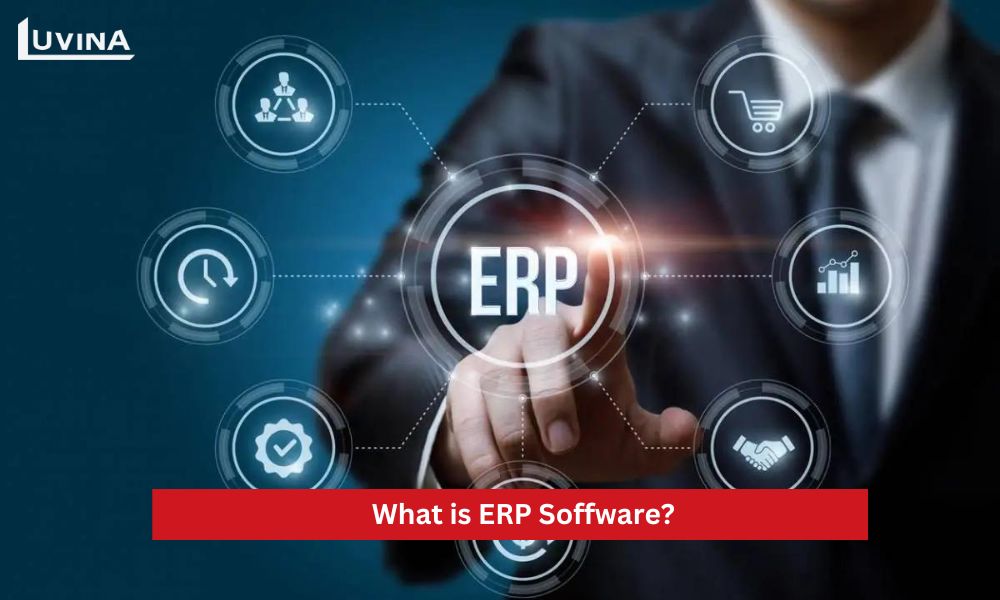
The best ERP systems are widely used in various industries to streamline workflows and enhance collaboration between departments in the business. They are not only applied to manage finances, inventory, and orders, but also support marketing processes, sales, and supply chain management.
Main ERP Systems Features
With their powerful and diverse set of features, top ERP systems help businesses improve operational efficiency in every aspect. Among them, the most prominent features of this software include
Integration: Centralizing data into a single management platform so that every employee has access rights and can utilize the data.
Automation: The best ERP software automates repetitive processes, reducing the time spent on manual tasks and minimizing errors.
Data analysis and reporting: The best ERP software turns data into reports and detailed information, providing businesses with an overview of their operations to allocate resources and seize business opportunities.
Tracking and visualization: Top ERP systems present business metrics coherently, making it convenient for businesses to track and access, thus facilitating the analysis of all aspects of business operations.
Accounting: ERP software helps businesses track, analyze, and store financial data, while also performing advanced tasks such as tax management, asset management, revenue recognition, etc.
Financial management: Top ERP systems support the finance department in tracking and analyzing comprehensive business data for easy financial control, resource tracking, or capital management of the business.
CRM (Customer Relationship Management): When using ERP software, businesses gain important customer data, such as contact information, purchase history, preferences, etc., to build better care processes, and establish loyal customer files.
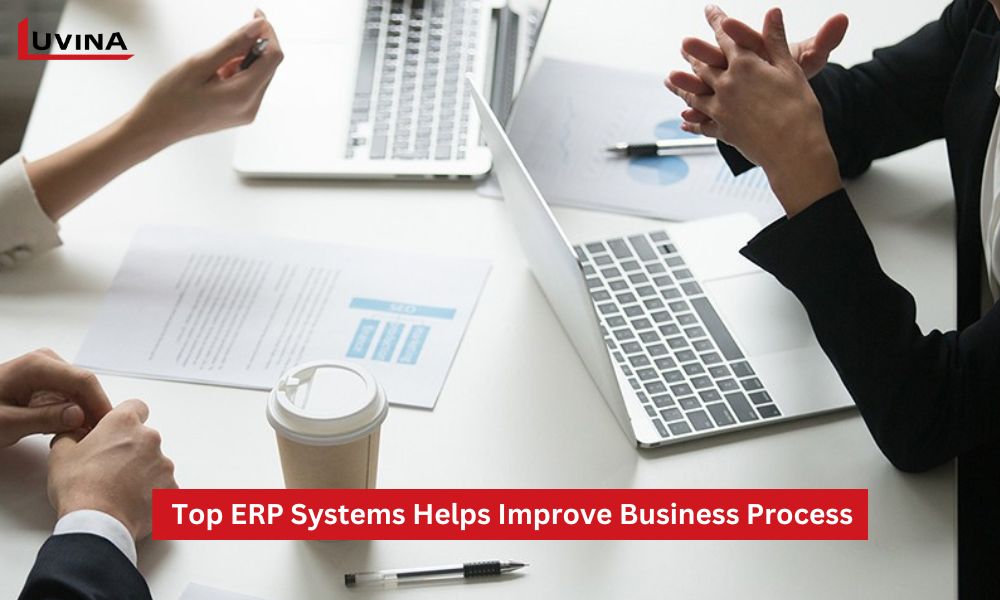
Sales and marketing: The best ERP software allows for attracting more potential customers to build effective campaigns and track customer activities throughout the sales cycle. The sales department also benefits from features such as quotation creation, purchase action forecasting, commission management, and profit rate tracking.
Human Resources (HR): The best ERP software operates as a comprehensive human resource management platform, performing functions such as payroll processing, recruitment, attendance tracking, etc. All HR-related tasks are automated, saving time and money and reducing errors.
>> Also read: 6 Best HR ERP Software
Supply Chain Management (SCM): ERP software can track demand, manage inventory, etc. automatically.
10 Best ERP Software in 2024
Among the best ERP software available today, the following 10 programs are currently highly rated. Not only do they reduce operational costs, but they also fully automate essential business processes.
1. Oracle NetSuite ERP
- Features: User-friendly; easily scalable; fast and efficient; able to manage large amounts of data on a single server.
- Limitations: Resource-intensive; high licensing costs.
- Pricing: Pricing by request
- Best for: Manufacture, retail, finance, healthcare, IT, publishing,…
Oracle NetSuite ERP is one of the top ERP systems capable of handling complex business operations. With its powerful data processing capabilities, this software is well-suited for large-scale enterprises with high data requirements.
Moreover, Oracle NetSuite ERP is favored for its rich feature set (financial management, project management, risk management, accounting processing, etc.) while maintaining a user-friendly interface. However, due to its relatively high costs and the need for significant implementation efforts, Oracle NetSuite ERP may not be the best ERP solution for small businesses with limited internal IT resources.
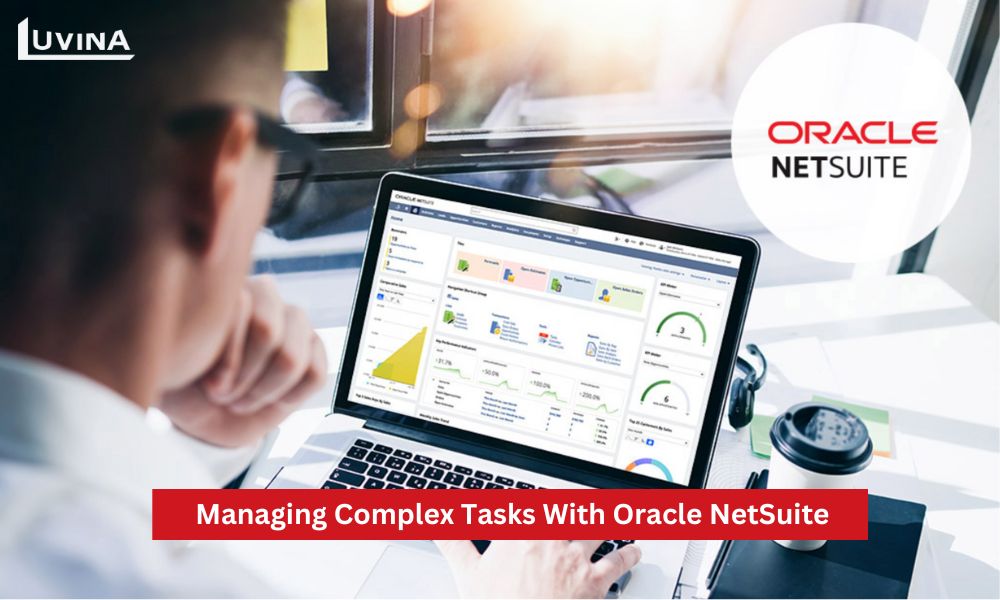
2. Odoo ERP
- Features: Open-source customization capability; streamlining of financial processes; and availability of a free community edition.
- Limitations: Difficult customization and troubleshooting; complex configuration; slow technical support.
- Pricing: One app: Free; Standard: $24.90/user per month; Custom: $37.40/user per month
- Best for: Shipping, medtech, manufacture, FnB,…
Many firms use Odoo ERP because of its wide variety of open-source apps and varied range of utilities. This program allows firms to automate activities to increase efficiency. Some of the applications it offers include manufacturing, accounting, payments, procurement, and manufacturing.
In particular, the order processing and inventory management features of Odoo ERP are highly praised. The software can also easily integrate with many popular third-party applications, such as Microsoft Office, Google Drive, and QuickBooks.
Although Odoo ERP is highly regarded for its flexibility, it also has relatively high maintenance and troubleshooting costs. Therefore, it may not be the best ERP solution for small businesses.
3. SAP Business One
- Features: Flexibility
- Limitations: Limited number of user licenses
- Pricing: Pricing available upon request
- Best for: Wholesale, distribution,…
If I had to choose one Oracle competitor from all ERP software providers, it would be SAP.
SAP Business One would be one of the most popular ERP systems that you should not overlook. This system is specifically designed for the SMB market, with the capability to streamline all business processes and impressive customization options. If your business has fewer than 500 users, this would be an extremely suitable ERP software solution.
4. ERPNext
- Features: Diverse range of features, flexible open-source
- Limitations: High resource requirements
- Pricing: Open source: free; cloud (managed hosting): $10/site per month; enterprise (up to 50 users): $1,250/site per month.
- Best for: Manufacturing, retail, education, healthcare, NPOs,…
ERPNext, despite not being high-end software with numerous advanced features, remains a popular choice for many small and medium-sized businesses (SMBs). It is one of the most popular ERP systems and can handle various tasks such as content management, project management, CRM, human resources, and inventory management.
Being an open-source solution, ERPNext’s features are primarily at a basic level. However, it can seamlessly integrate with third-party applications like WooCommerce, Shopify, Google Drive, Amazon, and Stripe.
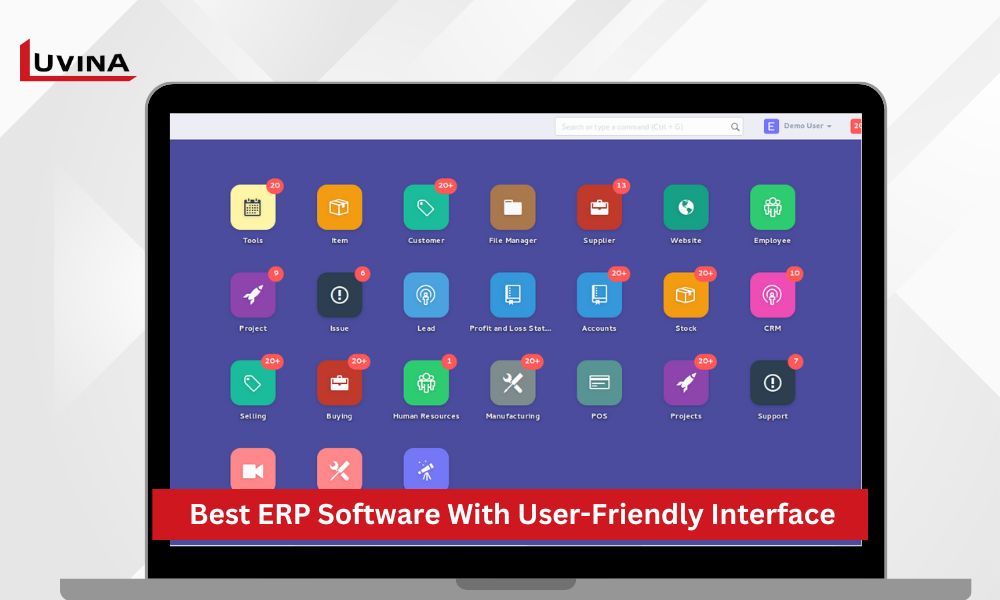
5. Microsoft Dynamics 365
- Features: AI integration; high-security level.
- Limitations: Hardware resource requirements; expensive; limited data storage capacity; complex setup.
- Pricing: $70 per user.
- Best for: Service, FnB, healthcare,…
Microsoft Dynamics 365 is the best ERP software that integrates operational tools and CRM functionalities. As a result, this software helps connect internal business processes with a customer-centric approach. Microsoft Dynamics 365 ERP is favored for its AI integration, which reduces manual tasks and minimizes errors resulting from them. Additionally, it offers high customizability. Moreover, the system seamlessly integrates with other applications within the Microsoft ecosystem.
6. Workday
- Features: Effective human resources task handling.
- Limitations: Time-consuming and labor-intensive conversion.
- Pricing: Pricing by request.
- Best for: Finance, logistics, healthcare, FMCG, education, retail, eCommerce,…
Workday is a top ERP software for managing finances and human resources, with customizable features to meet business needs. This software helps businesses analyze data to track business performance and provide detailed reports. Workday solution is suitable for businesses of all sizes.
7. Sage Intacct
- Features: Provides quality financial and accounting solutions; access data anytime, anywhere.
- Limitations: Limited customization.
- Pricing: Pricing is available upon request.
- Best for: Real estate, education, manufacturing, finance,…
Sage Intacct is considered the best ERP software on the market when it comes to financial solutions. Its financial features are so robust that some opinions suggest Sage Intacct resembles accounting software rather than comprehensive ERP software for managing business processes. To gain additional features when using Sage Intacct, businesses would need to integrate it with third-party tools.
In addition to providing detailed financial reports, Sage Intacct also handles advanced accounting tasks, inventory management, etc. All financial data of the business will be securely protected at the highest level.
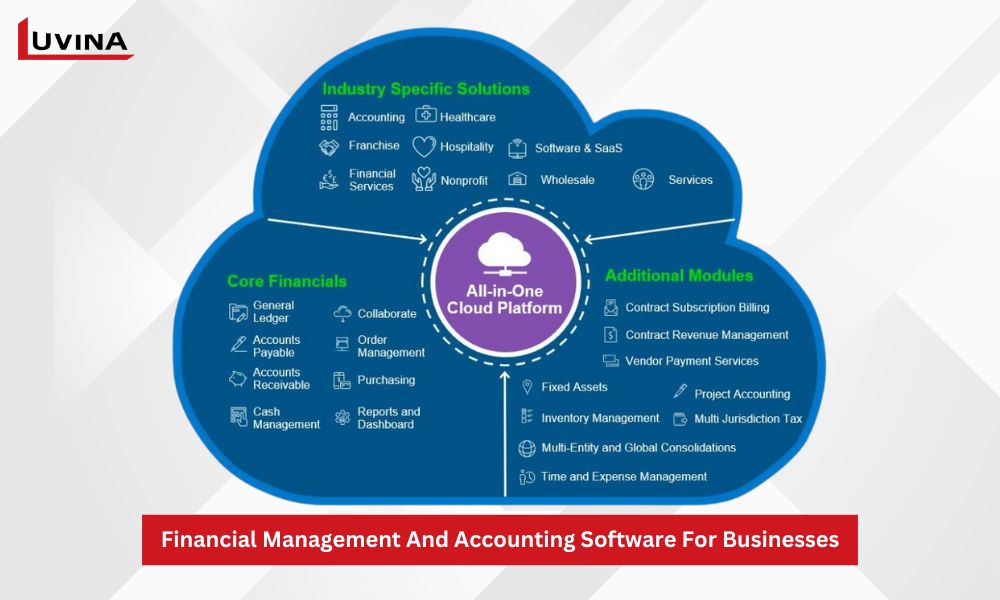
8. Acumatica Cloud ERP
- Features: Simple interface, good user experience; AI and machine learning capabilities; strong data security; flexible access anytime, anywhere.
- Limitations: Difficult customization.
- Pricing: Pricing is available upon request.
- Best for: Manufacturing, distribution, construction, FMCG, retail, hospitality,…
With its user-friendly interface, Acumatica Cloud ERP has made its way into the top 10 ERP software programs in the world. Thanks to its ease of use and the automation and AI functions of this cloud-based ERP software, it performs quite well. This software is highly suitable for traditional industries, such as distribution and manufacturing. However, if customized accordingly, Acumatica Cloud ERP can also support businesses in industries such as hospitality, education, consumer goods, and more.
9. Katana
- Features: Excellent inventory management capabilities.
- Limitations: Not particularly suitable for industries not heavily reliant on physical inventory.
- Pricing: $179 per month.
- Best for: Manufacturing
Katana is considered the best ERP software for small businesses in the manufacturing industry due to its ease of use and easy integration. It boasts powerful inventory management features, allowing direct inventory management, multi-channel order management, planning, prioritizing tasks, and more.
However, having robust inventory management features doesn’t mean Katana is only suitable for manufacturing businesses. This software can still be customized and integrated with third-party apps to expand its features according to business needs.
10. Orion
- Features: Operates smoothly across different network systems
- Limitations: Intermittent activity notification feature
- Pricing: Pricing is available upon request
- Best for: Manufacturing, services, IT, construction, education,…
As one of the top ERP systems on the cloud, Orion helps streamline operations, optimize resource allocation, and enhance productivity and collaboration across departments in businesses. It is highly rated as the best ERP software due to its ease of use and compatibility with most networks.
Orion is among the top 10 ERP software programs in the world and is suitable for various industries
Increase Productivity Today with the Best ERP Systems
With the top 10 ERP software programs, we hope your business will have at least one choice to improve your operations. If your business processes are not as efficient as expected, it’s time to change the “quality business” with the best ERP software solution.
To increase the success rate of ERP system implementation projects, consider partnering with Luvina for guidance and support. With experience working with top-quality ERP platforms such as GRANDIT, DYNAMICAX, WORKDAY, etc., Luvina will provide innovative solutions tailored to the unique needs of each business.
Contact Luvina now to explore the unexpected benefits of managing business operations with the best ERP software.
Related Posts:









Read More From Us?
Sign up for our newsletter
Read More From Us?
Sign up for our newsletter